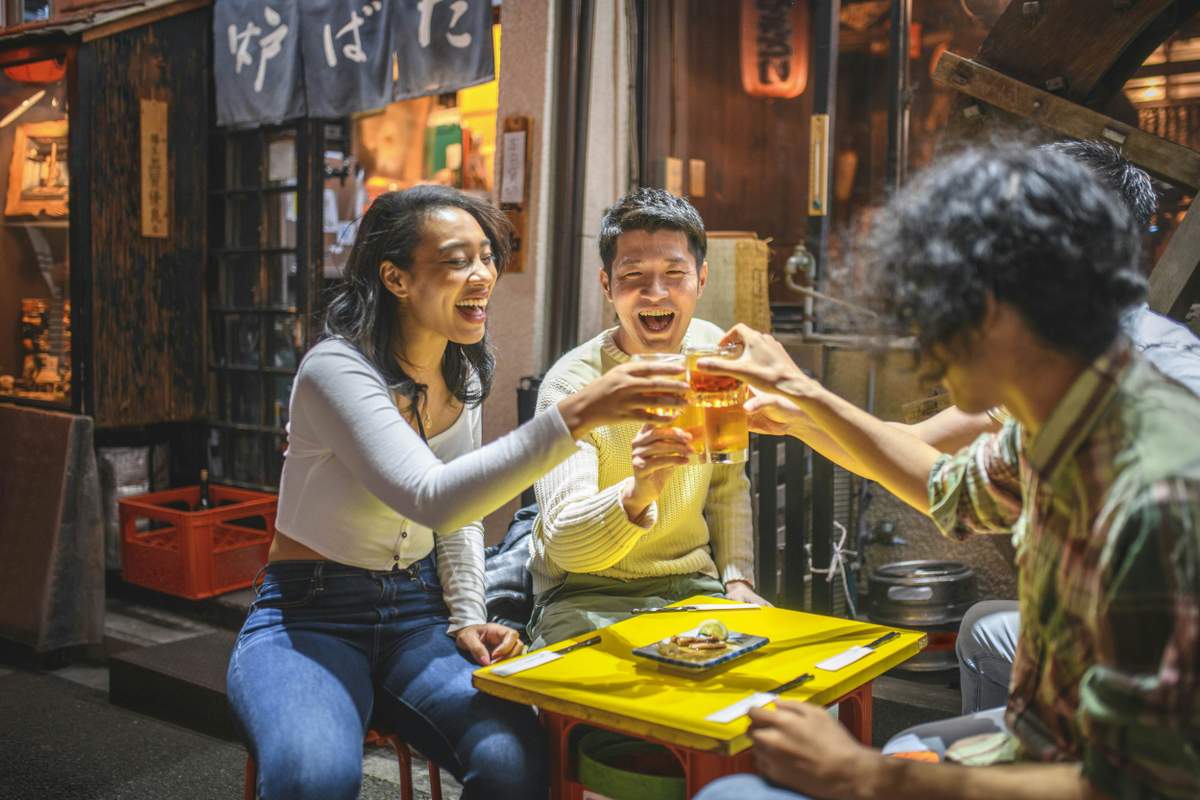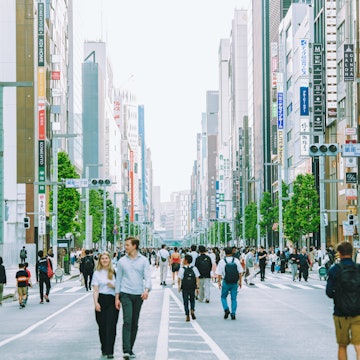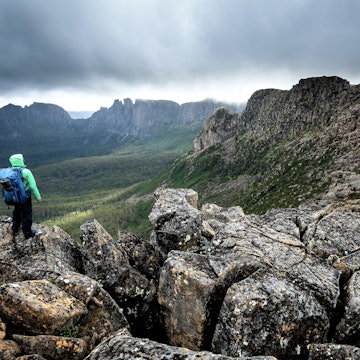

A boat near the Torii Gate of Itsukushima Jinja Shrine during the Kangen-sai Festival in Miyajima, Japan © Keren Su / Getty
Summer in much of Japan is hot and can be unrelentingly humid, but it’s also the season for top festivals, mass folk dancing, mountain hikes, and enjoying a cold beer on a city rooftop. If you’re travelling in Japan between June and September, carry a fan and make the most of these summertime experiences.
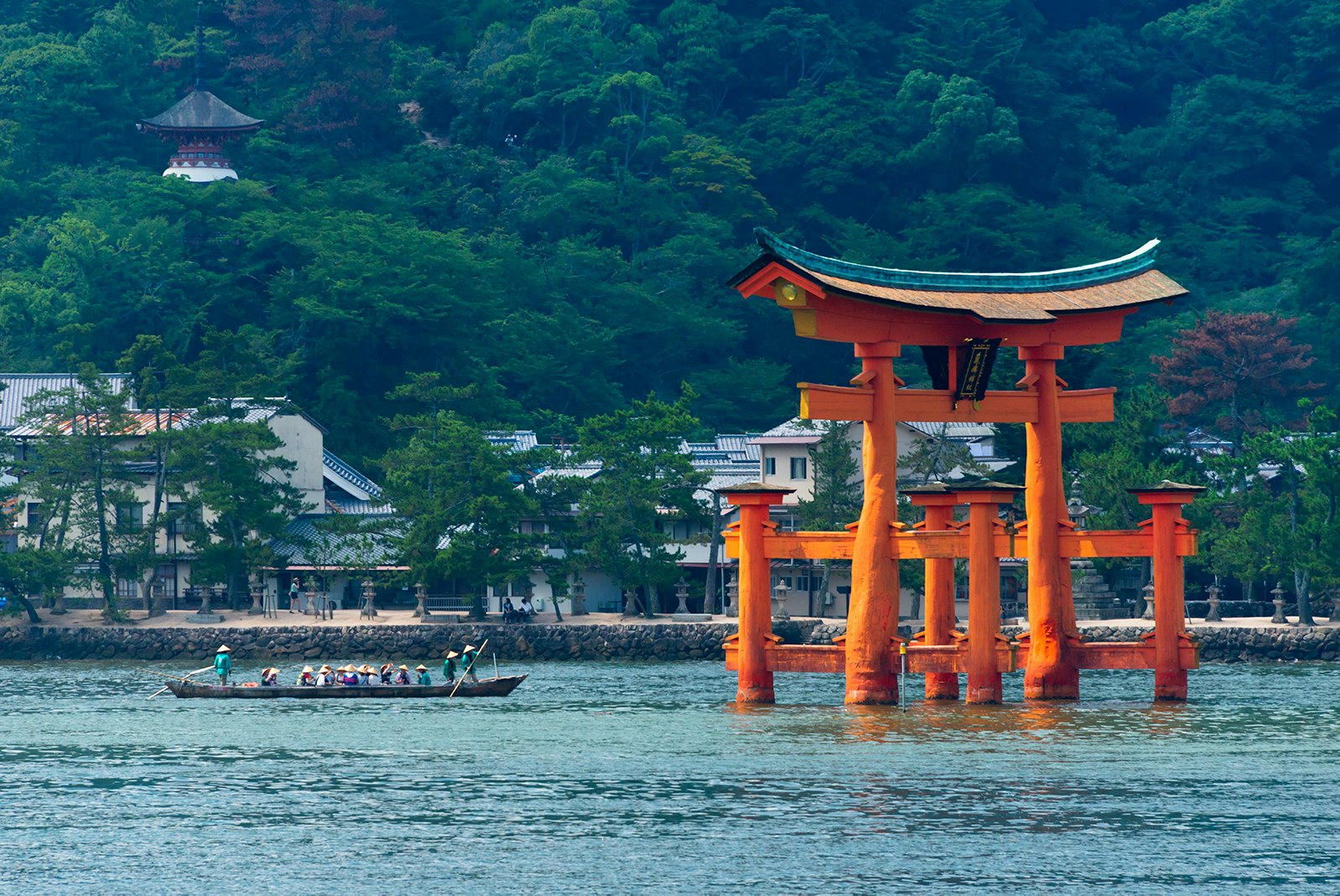
Japan's summer festivals and fireworks
It is difficult to travel in Japan during summer and not find yourself caught up in a matsuri (festival) of some sort. In cities and towns across the country, floats are paraded, people get kitted out in their colourful yukata (cotton kimono), food stalls cram the streets, fireworks explode, and the beer and sake flows.
Among the summer big-hitters are Kyoto’s famous Gion Matsuri, which runs for the whole month of July; and Osaka’s Tenjin Matsuri, on 24 and 25 July. In Northern Honshū there are unusual feats of strength – from 3 to 6 August people balance long bamboo poles strung with lanterns on their heads and shoulders for the Akita Kantō Matsuri. On Miyajima there is a centuries-old ceremony of traditional music in boats for Kangen-sai on 1 August. And on the island of Sado-ga-shima from 21 to 23 August, the Kodō Drummers wow music lovers at the Earth Celebration.
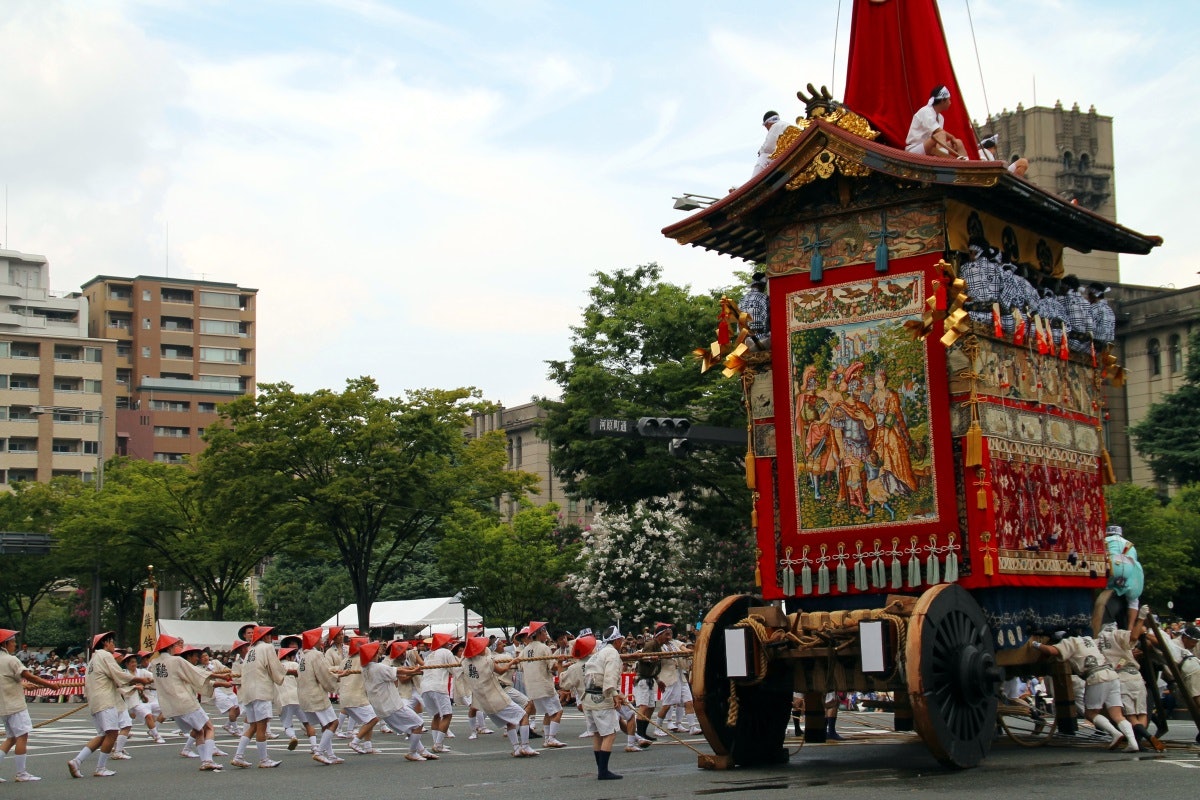
In late July and August, fireworks dazzle the skies all over Japan. In the capital, the big one is the Sumida-gawa Fireworks Festival on the last Saturday in July. In Ōtsu, Japan’s largest lake forms a mirror for the Biwa-ko Great Fireworks Festival on 7 August. Or go west to see fireworks light up the Kanmon Straits separating Honshū and Kyūshū on 13 August.
Dance the Bon-odori
Many events happen in mid-August during O-bon, the festival for honouring one’s ancestral spirits. It’s a time when the whole country takes a holiday: families get together in their home towns, graves are tended, lanterns are lit and – perhaps most interesting for visitors – the traditional Bon-odori (Bon dance) is performed. Bon-odori is a type of folk dance, involving a series of simple repeated arm and hand movements, steps and claps, sometimes incorporating a fan or a towel.

A good place to see Bon-odori en masse is at the Awa-odori Matsuri in the city of Tokushima, where each evening from 12 to 15 August teams of dancers move through the street competing for prizes, and much sake is consumed. If that’s not enough dancing for you, head to the town of Gūjo-Hachiman in the mountains north of Nagoya. There are 32 nights of dancing here between mid-July and early September as part of the Gūjo Odori festival – four of these nights see people stepping and clapping until dawn. Participation is encouraged. As the Awa-odori song goes: ‘It’s a fool who dances and a fool who watches; if both are fools, why not dance?’
Taste the summer season in Japan
Any season is a good season for eating in Japan, but each has its specialities. One summer favourite is a cold-noodle dish using very thin sōmen noodles. The thought of slurping down a cold noodle may not appeal to some, but it is a surprisingly refreshing meal. The chilled noodles are served with a dipping sauce and sides such as chopped cucumber, ham, tomatoes and shredded egg. If eating your noodles from a plate is too easy, look out for nagashi-sōmen (flowing noodles) setups at some restaurants and festivals. To eat, you have to first catch the noodles (with chopsticks) as they flow past in water through a bamboo half-pipe.
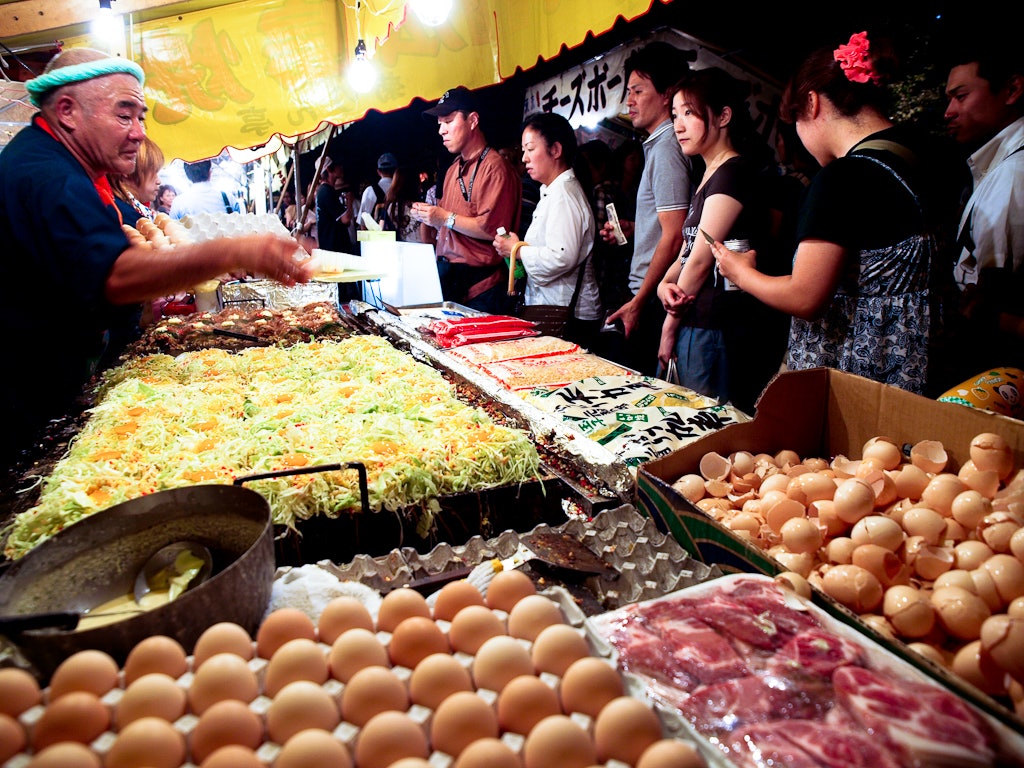
Excellent eating opportunities are also to be found at summer festivals, where fried goods and food-on-sticks dominate the scene. Before perusing the food stalls, it’s good to know your yaki. Yakitori (grilled chicken skewers), yaki-soba (fried noodles), tako-yaki (battered, fried octopus pieces), okonomiyaki (fried savoury ‘pancakes’) and ika-yaki (grilled squid on skewers) are all among the typical festival treats.
For a cooling dessert, try a bowl of kakigōri – a fluffy hill of shaved ice flavoured with sweet syrup, sometimes drizzled with condensed milk or topped with sweet beans, fruit and a scoop of ice cream. Standard syrup flavours include strawberry and lemon, but green tea, yuzu and other varieties abound.

Japan's beer gardens
From late May to early September Japan’s beer gardens open, attracting the weary after-work crowd, party groups, students, families and others looking to stave off the heat and have a cheap evening out. These are usually all-you-can-eat-and-drink affairs, with beer, barbecue and buffet food the staples. An all-in evening of food and booze typically costs between ¥3500 and ¥4000 (around US$32), though you can opt to pay as you go instead. It’s best not to expect fine dining or, indeed, a garden.
Many beer gardens are to be found on the rooftops of major department stores and hotels, or within parks. In Tokyo, Forest Beer Garden is a popular spot located in the Meiji-jingu (Meiji Shrine) outer garden. In Kyoto, you can eat and drink below the spire of Kyoto Tower atop the Kyoto Tower Hotel. Elsewhere, ask around: in Japanese ‘beer garden’ is pronounced bi-ya gaa-den.

Go north
When the sultry summer air gets too much, make for the milder climes of Hokkaidō, Japan’s northernmost island. Summer is perfect for hiking one of the prefecture’s multiple mountains, and for exploring its remote and rugged national parks, many of which become inaccessible during the colder months. Yotei-zan, Rishiri-zan, Daisetsuzan National Park and Shiretoko National Park are just a handful of the many outdoorsy options.
Summer is also when Alpine wildflowers make their appearance and the stunning flower fields of Furano come to life. At Farm Tomita, the landscape blooms into broad ribbons of pink, orange, yellow and purple from mid- to late July. Of course, you could just hang out in Hokkaidō’s capital Sapporo and take it easy. The Sapporo Summer Festival runs from late July to mid-August and centres on a beer garden that seats around 13,000 people. The festival has traditional dancing, firefly watching, and fireworks, too.

Climb Fuji
Official climbing season for Mt Fuji runs from July to mid-September. People do climb outside the official season, though authorities caution against this as there are fewer facilities and weather can be unpredictable. With vending machines at the summit, free wi-fi hotspots along the climb, and a few hundred thousand people traipsing up and down the volcano each summer, this is hardly the place for getting away from it all. To avoid the biggest crowds, steer clear of O-bon week and school holidays, or try for a weekday. Otherwise, it’s best to just embrace the experience.
This article was originally published in 2015. It was updated in June 2019.





